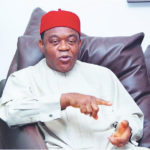When his actions, writings and utterances are subjected to analyses, it becomes crystal clear that Chief Obafemi Awolowo was propelled, more than any other thing, by the vision to emancipate the mind so that the individual could be at his best.
Awolowo, who was the first Premier of the old Western Region, was not under any illusion that ignorance shuts the mind to possibilities and opportunities. He knew that an ill-informed or uninformed person is not only a danger to himself but also a threat to the society. He was well aware that any society where ignorance holds sway will remain stuck in the backwaters of underdevelopment and experience progressive retrogression. So, having liberated his own mind from the shackles of ignorance, he set out to free his people from its malaise.
He did this both in his capacity as a private citizen as well as an elected leader. In his private capacity, he established the Nigerian Tribune on November 16, 1949; 71 years ago, to champion the cause of the people and furnish them with information that could help them take right decisions for themselves and the society. As the Premier, he introduced free education programme that mentally liberated the beneficiaries while equipping them with the knowledge and skills that would position them for improving their lives as well as the society. Then in 1959, he set up the first television station on the continent of Africa, the Western Nigeria Television Service (WNTS), primarily to educate and enlighten the people.
Nigerian Tribune has stayed true to the vision of its founder over the years not only through its advocacy but also by keeping the people properly informed. In the pre-independence era, the newspaper, alongside others like the West African Pilot and the Daily News, was in the vanguard of the struggle for independence. Nigerian Tribune and others put the colonialists on their toes, projecting the ills of colonialism and the benefits of self-government. This resulted in a groundswell of agitation by the people for self-determination. The newspapers did so well in mobilizing the populace that the British colonialists acceded to conceding independence to the country without having to resort to any war.
In the post-independence era, Nigerian Tribune has not veered from its mandate, identifying with the people and tasking those in power to deliver on their promises. The newspaper has consistently mirrored the challenges of the people to those in power while also picturing government’s activities to the governed. The Tribune has never vacillated in speaking truth to power, irrespective of whose ox is gored. The newspaper has consistently taken position against whatever is against the interest of the people. It has been able to do this through its detailed and balanced reports, incisive and insightful analyses as well as punchy and biting editorials. These have endeared the paper to the people.
But identifying with the people has not been without a price. In the wake of the crisis that engulfed Western Region in the First Republic, the Tribune suffered a series of attacks from those in power as copies of the newspaper were regularly carted away by those who wanted to deprive the public of the truth contained therein. Vendors selling the newspaper were repeatedly harassed while its workers were subjected to varying degrees of inhuman treatments. Though not proscribed, the Tribune could not be displayed freely on the streets. But rather than the influence of the newspaper diminishing, it became the toast of newspaper readers.
In the twilight of the Second Republic, the newspaper was threatened with closure by the government of the day but that did not deter the newspaper from identifying with the people. The newspaper has continued to live up to its sobriquet, Apamaku, the undying legacy.
Not a few have wondered why the Tribune, despite its much travail, has been growing stronger instead of going under, especially considering that all of its contemporaries have since become history. Three reasons are responsible for this. The first is that its emergence was not on the spur of the moment, it was a product of a clearly-defined vision. The newspaper was established to champion the cause of the people, nothing else, nothing less. On the contrary, the establishment of many of the country’s newspapers was capricious; hence they could not withstand any serous stress. The Sketch was established by the government of Western Nigeria to counter the Tribune; National Concord was founded to champion the cause of Chief MKO Abiola and the National Party of Nigeria, and the National Advocate was started to project Chief Adisa Akinloye.
The second reason is that the newspaper was not built around Chief Awolowo’s personality unlike the tradition in the industry. The newspaper was birthed by Chief Awolowo for the people, not for himself. A newspaper that will go the distance must be owned in trust for the people by the proprietor.
Then, the newspaper company is on a journey of endless innovation. It has kept pace with technological advancement in its field of operation. This has made it relevant at all times and in all seasons. These have been the staying power of the Tribune.
As the Tribune, Nigeria’s oldest surviving privately-owned newspaper, celebrates its 71st anniversary, this is wishing it more celebrations in the years and decades to come. May the glory of the latter years surpass the former.
YOU SHOULD NOT MISS THESE HEADLINES FROM NIGERIAN TRIBUNE
Kamala Harris Becomes America’s First Female Vice President
Kamala Harris made history on Saturday with her election as Joe Biden’s vice president, becoming the first woman, first Black American and first Asian American to win the second-highest US office.






